Little space for women lawmakers in Balochistan
For religious parties, women are to supposed to stay at home
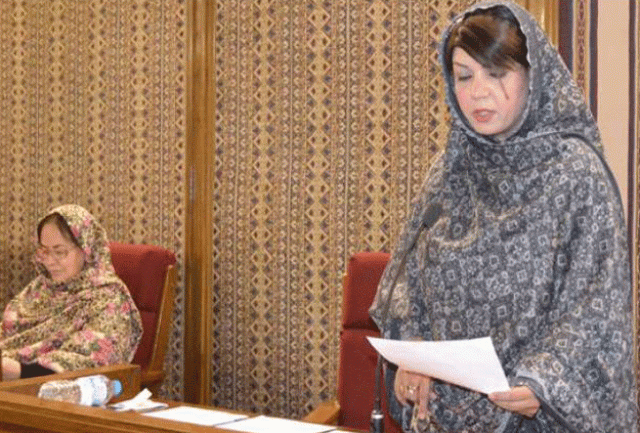
Balochistan Assembly passes Women Harassment Bill 2016. PHOTO: EXPRESS
Balochistan – a violence-ridden province in Pakistan – is dominated, overwhelmingly, by conservative attitudes where discrimination against women is arrant. Here, social and cultural factors have left very little space for women in politics and, therefore, there is almost no space for them to scream and demand their rights.
Balochistan gender exclusion: Not a single woman on 1,450 seats
Out of the eight major political parties in the province including Pakistan Muslim League (PML-N), Pakistan Tehreek-i-Insaf (PTI), Pakistan Peoples’ Party (PPP), Pakhtunkhwa Milli Awami Party (PkMAP), Jamiat Ulema-i-Islam Fazl (JUI-F), National Party (NP), Balochistan National Party (BNP) and Awami National Party (ANP), only PML-N issued tickets to women during the last general and local bodies (LB) polls. Some 1,450 contestants – all male – fought during the LB polls.
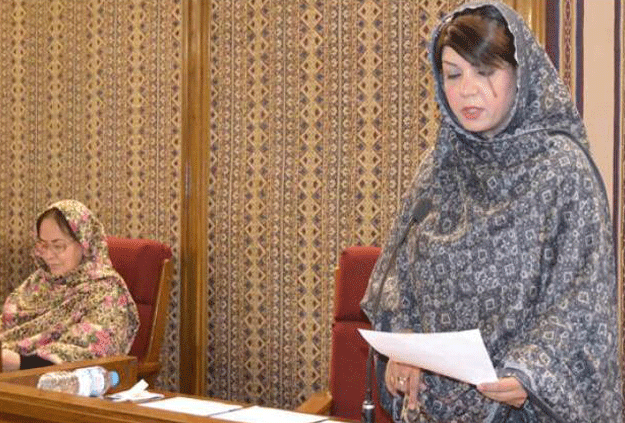 Balochistan Assembly passes Women Harassment Bill 2016. PHOTO: EXPRESS
Balochistan Assembly passes Women Harassment Bill 2016. PHOTO: EXPRESSPML-N’s Rahila Hameed Durrani, in 2015, was unanimously elected as the first-ever female speaker of the Balochistan Assembly. PML-N's Central Executive Member, Saidal Khan Nasar, however, emphasises that only one female Balochistan assembly member, Rahat Jamali, was elected through direct voting on a PML-N ticket.
“We have made [Rahila Hameed Durrani] the first woman speaker of the Balochistan Assembly and made history in the province as it is not easy to provide such huge space to women in the province’s tribal society.”
Interestingly, only NP, PML-N and PPP in Balochistan have women's wings in their party’s forums.
Rahila Durrani elected first woman speaker of Balochistan Assembly
The National Party in Balochistan has been serving women, within the party and across the province, through a women's wing since the 70s. “We raise women issues in the assembly. Even in 2014, when a group threatened girls to stop going to school in Panjgur district, we took a stand,” says NP’s Woman Affairs Secretary Dr Shama Ishaq Baloch.
The lack of female representation in Balochistan, however, is still a persistent obstacle.
Women in Pakistan's least developed but resource-rich province are constantly made to live under the shadow of poverty, joblessness, illiteracy and radicalisation. Even fundamental health facilities for women are insufficient and substandard. They desperately need their voices to be heard.
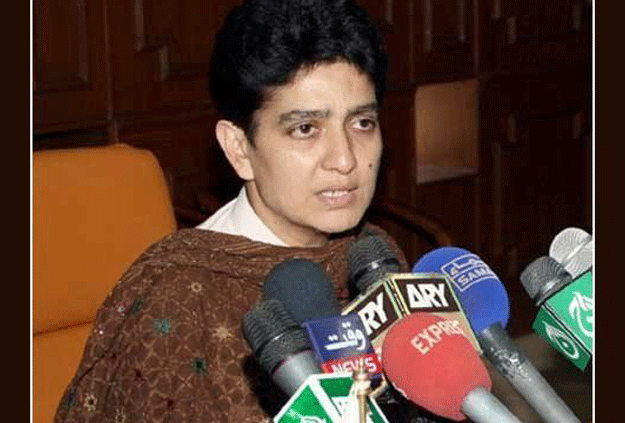 Rahila Durrani, Balochistan Assembly's first elected woman speaker. PHOTO: EXPRESS
Rahila Durrani, Balochistan Assembly's first elected woman speaker. PHOTO: EXPRESSIn a male-dominated provincial cabinet of 12 ministers and four advisers, there is no major representation of women. Interestingly, even departments meant to be platforms for women are being operated and governed by male MPAs.
The Balochistan Assembly, on the other hand, is home to 13 women lawmakers out of whom 12 were elected on reserved seats while one through direct voting. A majority of the women elected come from influential families with no real awareness of varying issues involved in politics. They are also criticised for not making use of their positions in the assembly and addressing issues plaguing women.
Additionally, women do not make any breakthroughs in politics because they have never been given the opportunity to hold a position of authority that could influence policies. When such positions are, by chance, awarded to women, even within their own political parties, the socio-culture ethos of the political sphere does not allow them to possess any decision-making powers - thus, rendering their designation a farce meant to placate them. There is, however, a growing realisation amongst women in Balochistan that their political rights are being increasingly undermined and something has to be done about it.
Baloch women say they want to go to universities and not fear for their lives
PkMAP’s MPA Spozmi Achakzai is an elected MPA who won a reserved seat for the first time in 2002. She grabbed the very seat again in 2013, but complains that she “just has a party membership without any designation.”
She stresses that women will never be able to express their opinion in local politics unless they get due representation through party designations in both provincial and central cabinets.
“Women should have a right to hold half the seats during general elections. We believe in equality and only a fair representation of women can address their issues,” says Achakzai.
According to Quetta-based women rights activist Rani Wahidi, women have a lot of potential in politics and it is high-time they are made a part of Balochistan’s conventional political structure. “A politically learned and skilled female politician can relate more to women-centered issues than any man.”
A report by FAFEN (Free and Fair Election Network) points out that from June 2013 to February 2017, the Balochistan Assembly passed three bills pertaining to women. Two resolutions were also submitted by female lawmakers, but the house passed only one demanding the establishment of a Women's Parliamentary Caucus in the assembly. A resolution proposing the establishment of diagnosis centres in the province for breast cancer was not addressed.
“We have passed two bills. One of them was against women harassment at workplaces and the second dealt with domestic violence against women, children and vulnerable persons. A third bill on the prohibition of child marriage is in the process of planning. The legislation, especially in a tribal society, is a big achievement for us,” says MPA Achakzai.
Balochistan moves to shun workplace harassment
Many believe, however, that the women in Balochistan need to become more politically active to be able to gain traction towards women's issues so they are adequately addressed by politicians. Displaying her disappointment, Wahidi also stated that she didn't understand why female members of the provincial assembly had, so far, failed to advocate women issues in the assembly.
“The submission of two women-centered resolutions by female members in four years is nothing,” she insists. These women support their party’s stance in the assemblies and look to male members for guidance instead of taking an individual stand for issues pertaining to women.
“Male members [within a political party] do not give us the facilities and confidence we deserve if we want to do something for women. Neither do they, themselves, pay any attention to women's issues.”
An assembly is a place where policies are discussed and made. But in the case of women in politics, especially in Balochistan, women's issues are not discussed with the women. In fact, women in politics are still hesitant in making their presence felt because they think their male-dominated party leadership will never support them if they do.
“The attitude of male leadership towards female legislators is not good. They do not give opportunities to them to grow and instead, disregard their issues,” Wahidi continues.
Before 2000, female participation in the assemblies was minimal. It was in Pervez Musharraf's era that women earned 33 per cent representation at local government levels for the first time. The number of women in the national and provincial assemblies surged to 17 per cent ahead of the 2002 elections.
According to FAFEN, women make up 46 per cent of the population in Balochistan while their representation in the provincial assembly is a mere 20 per cent. With 13 female lawmakers in the incumbent provincial assembly, one female lawmaker is to represent nearly 358,292 women, whereas each male lawmaker represents 105,186 men.
Rationalising the notion, PkMAP’s Senator Muhammad Usman Khan Kakar says “except the reserved seats, women should also be given space for direct voting. Unfortunately, our society and voters have not reached the awareness levels [in Balochistan] where they can vote for female candidates.”
Only when religious parties in the province come up with their own explanation for why women should not be given freedom in politics, is when the debate on women rights suffers a setback. For them, women are supposed to live in their homes, and their participation in mainstream politics will decimate the entire social system of the province.
“Women do not represent our political structure at any level and until now, we have not made any space or provision in this regard as far as Jamiat's constitution is concerned,” says JUI-F’s Balochistan Information Secretary Abdul Bari Achakzai.
“We are convinced of women's politics but within Shariah law and in those areas of life where their participation is helpful.” JUI-F not only appreciates women but also provides options for them, claims Bari Achakzai.
Invisible and silent, the suffering of the women in Balochistan will not end until they are given enough representation in the province's political framework. Their presence will make a significant impact on the socio-cultural fabric of society and will help raise the quality of life of the people of the province as a whole as well. One can only hope that political parties soon realise the gravity of the subject.
Hizbullah Khan is a freelance investigative journalist.


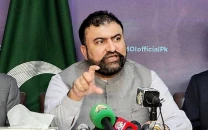


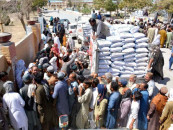
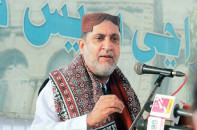












COMMENTS
Comments are moderated and generally will be posted if they are on-topic and not abusive.
For more information, please see our Comments FAQ